On the evening of February 20th a report by the BBC Jerusalem bureau’s Yolande Knell was published on the BBC News website’s ‘Middle East’ page under the headline ‘Israel declares temporary pause on new West Bank settlements’.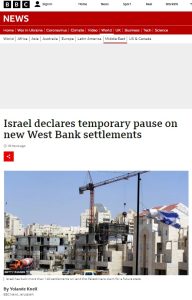
Although readers would not know it from that headline, Knell’s article relates to a story concerning a proposed UN Security Council resolution drafted by the Palestinian mission to the UN which was reportedly withdrawn following American intervention, with a joint statement issued by UNSC members instead.
Knell provides BBC audiences with a somewhat economical portrayal of that statement:
“Israel has said it will pause building new settlements in the occupied West Bank for “the coming months”.
The move appears to be the fruit of behind-the-scenes talks by the US with Israeli and Palestinian officials.
It comes as Palestinian leaders are being heavily criticised for agreeing to the withdrawal of a UN Security Council resolution on settlements.
The council instead issued a symbolic statement expressing “deep concern and dismay” at recent developments.” [emphasis added]
Knell’s report continues, focusing reader attentions on the topic of ‘settlements’:
“Last week, Israel announced the legalisation of nine unauthorised outposts and approved the planning and building of nearly 10,000 new housing units in existing settlements.
These steps are not expected to be reversed.
Washington had previously publicly warned Israel, its closest Middle Eastern ally, not to authorise new settlements.
The settlements are considered illegal under international law, though Israel disputes this.
When the earlier announcement on settlements was made by Prime Minister Benjamin Netanyahu, the US joined European governments – France, Germany, Italy and the UK – in saying it was “deeply troubled”.
However, it also said it was “unhelpful” when the Palestinians went on to draft a Security Council resolution, to be put forward by the United Arab Emirates.
The resolution would have reaffirmed “that the establishment by Israel of settlements in the Palestinian territory occupied since 1967, including East Jerusalem, has no legal validity and constitutes a flagrant violation under international law”.
It would have been embarrassing for the US if it had been forced to use its veto power at the Security Council to protect Israel, as it often has in the past.
When the UAE informed the council that it would not call a vote, it cited “positive talks between the partners” and said that its president would issue a statement instead.”
Notably, at no point in her report does Knell inform BBC audiences that the statement also related to other issues, including one serially avoided by the BBC: the PA’s obligation to combat terrorism under the terms of the Oslo Accords.
“The statement also condemned “all acts of violence against civilians, including acts of terrorism” and called on all parties to condemn acts of terrorism, refrain from inciting violence and hold those targeting civilians accountable. Members also recalled “the obligation of the Palestinian Authority to renounce and confront terror.””
Relatedly, Knell’s account does not include reports that the agreement brokered by the US Secretary of State includes the resumption of security coordination between the PA and Israel and PA commitment to a US proposed plan to restore its control over locations including Jenin.
As has been the case in BBC reporting in previous years, Knell promotes the notion that the timing of holidays means “increased potential for clashes”:
“There is a general concern – voiced by many in the international community – about the likelihood of violence in the coming months.
The Muslim holiday of Ramadan is set to overlap with the Jewish holiday of Passover in April, meaning there is increased potential for clashes at contested holy sites, particularly in East Jerusalem.”
As ever she refrains from informing BBC audiences that increased violence during the month of Ramadan is the product of incitement and pre-planned acts of violence rather than some mere calendarial coincidence.
In paragraph three of her report Knell states that “Palestinian leaders are being heavily criticised for agreeing to the withdrawal of a UN Security Council resolution on settlements”. She later devotes five paragraphs to uncritical amplification of such criticism from Hamas, Mustafa Barghouti and a semi-anonymous Twitter user.
Knell closes her report with standard framing of the two-state solution which as ever whitewashes the fact that not only can the Palestinians not present a united leadership to negotiate such an agreement with Israel, but that the more popular faction is a widely-designated terrorist organisation that opposes existing agreements, dismisses the idea of a two-state solution and rejects Israel’s very right to exist.
“Palestinians seek an independent Palestinian state in the West Bank and Gaza, with East Jerusalem as their capital – all territories that were captured by Israel in the 1967 Middle East War.
This is the basis of the long-time, internationally-backed, formula for peace known as the two-state solution.”
Equally predictable is Knell’s failure to provide her readers with any information about the status of the “territories that were captured by Israel in the 1967 Middle East War” before they were invaded by Egypt and Jordan nineteen years earlier. And so, in what has become standard BBC practice, history begins in June 1967 and readers are told nothing about the inclusion of those areas in the Mandate for Palestine or the illegal Jordanian occupation of territory to which the Palestinians only laid claim (see Article 24) after the Six Day War.
Despite the BBC’s public purposes obligations to its funding public, coverage of Israeli and Palestinian affairs continues to be framed in a manner which, while promoting talking points such as ‘settlements’ as the prime obstacle to a peaceful resolution to the conflict, portrays the Palestinian side of the equation as entirely lacking agency or responsibility.
Related Articles:
BBC NEWS JUMPS THE GUN ON LEGALISATION OF OUTPOSTS
BBC FRAMING CONTINUES TO BLUR UNDERSTANDING OF TERROR
BBC NEWS CONTINUES TO PRESENT A PARTIAL PICTURE OF TERROR IN JENIN

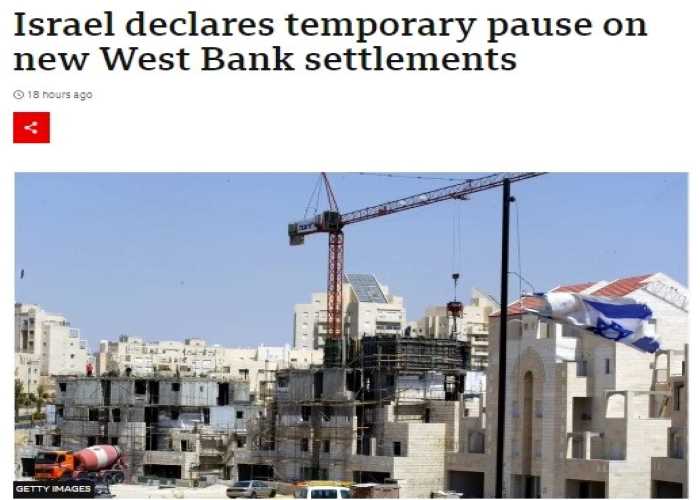
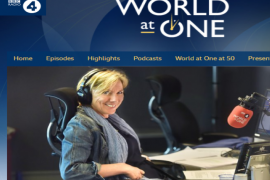
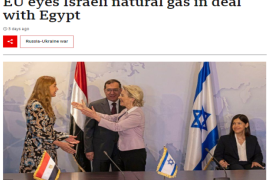
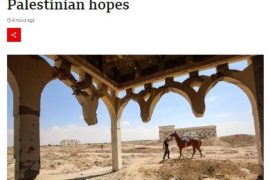
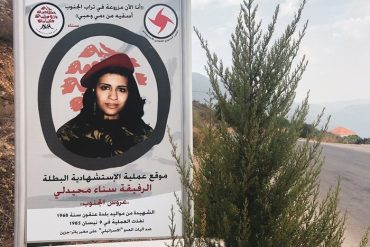
“The settlements are considered illegal under international law, though Israel disputes this”.
This is the statement which you read primarily on the BBC and you hear it from politicians as well. It is the most annoying thing, primarily because it is not true. You cannot consider a thing illegal, it is or it isnt. And it isn’t illegal. Ask the journalist or politician to quote chapter and verse, they cant, they haven’t a clue where to start. International law has to have source. Convention, treaty etc.
The only international legal instrument which it could be based on is the Geneva 4th Convention 1949, which does not talk about these circumstances. Why aren’t we shouting this from the rooftops? Let BBC (and other) audiences hear or read the truth!
Rather a shame that Knelll’s world history started in 1967 – perhaps the BBC thinks that its audience are only 64 years old and that there is no reason to go into history prior to this date. One assumes that they only talk about Russian history after 1990’s but nothing about the USSR.